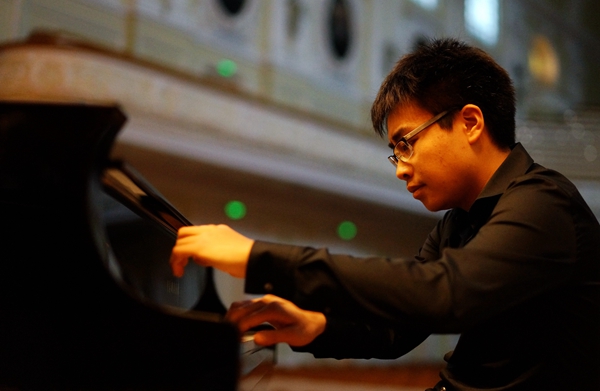

Other music pieces he is going to present include Corea's most famous compositional pieces, Humpty Dumpty, 500 Miles High and Spain.
At the opening of Blue Note Beijing in 2016, Corea expressed his excitement in front of his audience.
He said: "When I was cutting my teeth in New York in the '60s, seeing Miles Davis and John Coltrane play, Asia seemed so far away. Not now.
"Jazz became what it was in the clubs. That's the basis of it, more than Carnegie Hall or any other fancy hall. The clubs are where it can live because they're experimental. So my advice is make a vibe here, where the local musicians and people interested in jazz can come hang, not like at a concert hall where they come, listen and leave."
Beijing's jazz scene has improved since then.
Tickets of A Bu's concerts sold out fast, and he also composed new songs for the concerts in particular.
Corea once said, "It's not only that the world needs more artists, it's also just a lot of fun", which has had a great influence on A Bu.
"He once told me that it's important to sustain that passion and interest in music. He also encouraged me to meet people," says A Bu.
"Though he was in his 70s, he was just like a friend to me, not a big star."
Born in Beijing, A Bu, whose real name is Dai Liang, began training in classical piano when he was 4.Before he turned 10, he was enrolled to study at the primary school of the Central Conservatory of Music in the capital.
His father, Dai Bin, a music lover, found that the boy enjoyed playing impromptu for hours after finishing the practice sessions assigned by his teachers. Then he invited Chinese pianist Kong Hongwei, who formed one of the country's pioneering jazz bands, Golden Buddha, to teach his son for more than five years.
The father usually took his son to Beijing's popular jazz venues, where the boy not only watched a lot of live jazz performances but also jammed with musicians.
Because of the pandemic, A Bu has spent a lot of time practicing in his home in New York, which allowed him to write music.
In January, he released a third album, titled One Step East, featuring 11 pieces he composed and adapted from classic jazz songs, which showcased the chemistry between the musical languages of the East and the West that he absorbed.
"I feel lucky that I found something I love. I get ideas for composing from everyday life and I collect them on my phone or notebook," says A Bu.
"They may not all be developed into full music pieces but they're part of the creative growth."
Before A Bu goes back to New York to continue his study, he will give live concerts in a few Chinese cities, featuring his original compositions.